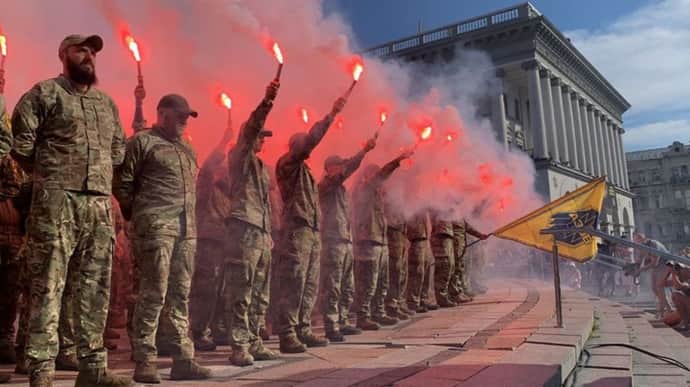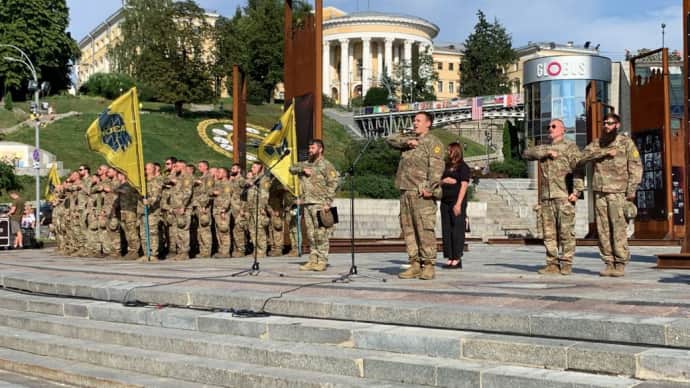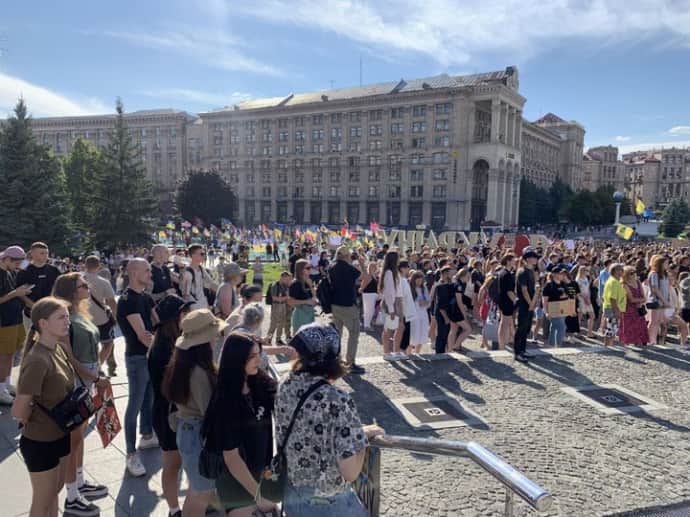Daily Flyer - July 29, 2024
A voice of Ukraine to the West

Around 500 people were evacuated from Pokrovsk in Donetsk Oblast monthly according to the authorities
Approximately 500 people are being evacuated from the frontline town of Pokrovsk in Donetsk Oblast every month, according to Serhii Dobriak, the city administration head, in a statement to Radio Free Europe/Radio Liberty (RFE/RL) on July 29.
Pokrovsk has been a hotspot of intense fighting for several months, with Russia's offensive in Donetsk Oblast being particularly fierce in this region. Ukrainian forces repelled 36 attacks in the area in a single day, as reported by the General Staff in its latest update.
Dobriak stated that about 60,000 people remain in Pokrovsk, including 4,000 children, while an additional 4,000 children have already been evacuated.
"Currently, the town is located 20 kilometers from the front line. We are diligently fulfilling the tasks related to fortification construction as directed by the military leadership, meeting all requirements," said Dobriak, head of the city's military administration.
Ukrainian authorities have faced criticism for the slow pace in strengthening defensive lines. In March, President Volodymyr Zelensky announced that Ukraine was constructing 2,000 kilometers of fortifications across three defense lines, acknowledging the task's magnitude but asserting that the progress was satisfactory.
Governor Vadym Filashkin reported that as of late June, the third line of fortifications in Donetsk Oblast, built by civilians, was 90% complete.
Meanwhile, the crowd-sourced monitoring website DeepState claimed on July 27 that Russian forces have captured the villages of Vovche and Prohres in the Pokrovsk sector. However, these reports have yet to be officially confirmed by Kyiv.
Russia is moving military equipment to Zaporizhzhia Oblast progressively
The movement of Russian military equipment towards Zaporizhzhia Oblast via occupied Mariupol in Donetsk Oblast has "sharply increased" in scale, according to Petro Andriushchenko, an adviser to the city's exiled mayor, who made the statement on July 29.
This development comes just days after a Ukrainian military spokesperson confirmed that Russia is reinforcing its military presence in Zaporizhzhia Oblast by deploying at least 2,000 additional troops in recent weeks.
While Russia has reportedly concentrated approximately 90,000 troops in the region, intelligence assessments suggest that a major escalation in hostilities in the oblast remains unlikely, the spokesperson previously noted.
Over the weekend, the Russian military transported equipment, primarily tracked vehicles, towards Zaporizhzhia Oblast, with a temporary halt near the villages of Manhush and Nikolske in Donetsk Oblast, according to Andriushchenko.
These claims have not been independently verified by The Kyiv Independent.
Andriushchenko reported that Russian military equipment is now marked with a new symbol, consisting of a triangle within another triangle. Vehicles and fuel tanks en route to the occupied city of Berdiansk in Zaporizhzhia Oblast bear these markings. Additionally, Russian troops have begun concentrating personnel and equipment at the Mariupol Metallurgical Plant.
"They [Russian troops] are actively utilizing 'false civilian' 20-ton white trucks to transport personnel. This is the first instance we've documented this tactic during the occupation," Andriushchenko added.
In recent months, Russian forces have been establishing a military and logistics hub in Mariupol, constructing military bases, stocking warehouses, and developing a defensive line to secure the city, as reported by local authorities earlier.
Mariupol was besieged by Russian forces between February and May 2022, resulting in thousands of deaths and extensive destruction.
Authorities estimate that at least 25,000 people may have been killed during the siege of Mariupol, though the exact number remains uncertain and could potentially be much higher.
Protest held in Kyiv due to the second anniversary of Russian terrorist attack on PoW camp in Olenivka

A traditional Sunday meeting in support of the liberation of Ukrainian prisoners of war was held at Maidan Nezalezhnosti Square in Kyiv on July 28. The gathering also honored the memory of Ukrainian soldiers killed in a Russian terrorist attack on a PoW camp in the occupied settlement of Olenivka in 2022. Around 1,000 people attended the protest, including families and friends of the captured Azov soldiers and Ukrainian marines, as well as dozens of soldiers from the Azov Brigade.
The Free Azov protest marked the second anniversary of the Olenivka attack. To commemorate the fallen soldiers, an exhibition titled Olenivka: Quintessence of Cruelty opened in central Kyiv. This event was organized by the Association of Families of Defenders of the Azovstal Plant, in collaboration with the National Museum of the Revolution of Dignity.

A minute of silence was observed to honor the victims, followed by speeches from Ihor Poshyvailo, Director of the Museum of the Revolution of Dignity, and Sviatoslav Palamar, also known as Kalyna, the Hero of Ukraine and Deputy Commander of the Azov Brigade. Palamar highlighted demands from his fellow soldiers regarding PoW swaps, emphasizing that Azov defenders and those injured in the Olenivka attack should be prioritized. He also insisted that traitors be excluded from swap lists, declaring, "If traitors and collaborators are included in forthcoming PoW swaps, do not expect a single heroic deed from our soldiers!"

Palamar also urged the Ukrainian government to designate July 29 as the Day of Remembrance for Ukrainian Defenders killed in Olenivka. After voicing their demands, the soldiers recited the Prayer of a Ukrainian Nationalist and launched fireworks.
During the protest, participants held posters supporting Ukrainian soldiers held captive by Russia and demanded the release of soldiers from the Mariupol garrison.

